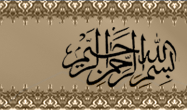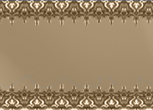|
Q: What is the conformity principle and who can apply it?
A: Please read: Conformity principle, Mutabeqat ka Usool (Roman), Mutabeqat ka Usool (Urdu)
Humble request to our readership:
Please read and verify yourselves all the home page material given below and provide your valuable feedback, comments or observations but more importantly please do notify me of any mistakes, misinterpretation, internal contradictions and/or any errors that might have resulted (which has no bearing whatsoever on anyone else muchless the Mahdavia community) from my humble and sincere effort in my understanding of the word of God (Kalaamullah). I'll gladly and duly rectify it after due diligence, Inshallah.
Thank you and Jazak Allah khair for spending time becoming familiar with The Message and Religion of Kitabullah!
|








